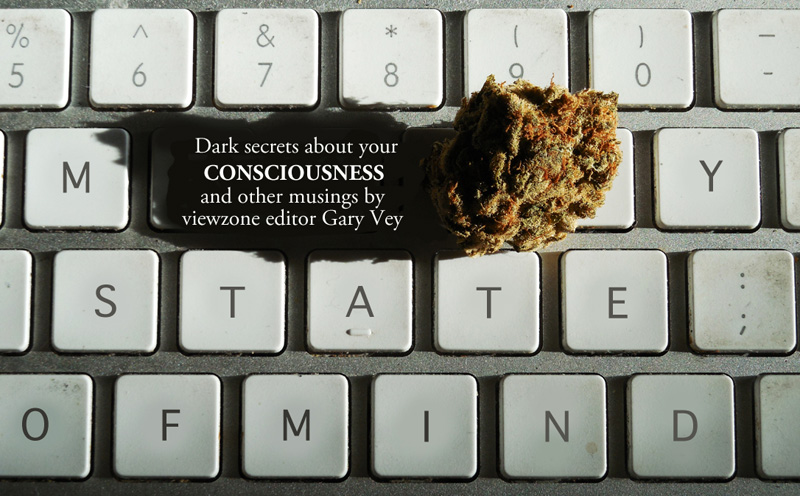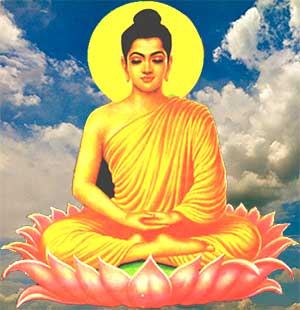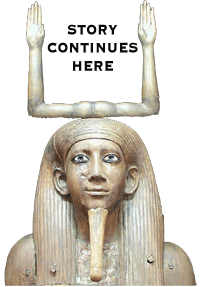
Buddha said, "First remove 'I', that's Ego, then remove 'want', that's Desire.
See now you are left with only 'Happiness.'"
-- Gautama Buddha, Sayings Of Buddha
Guatama Buddha (Prince Siddhartha)
Central America saw horrific human sacrifices, as did many other regions and cultures around the world at this time. Despite these desperate efforts, the bicameral voice rarely spoke anymore. In Asia, living in the heart of Hindu tradition, a single man decided to tackle the negative problems of consciousness head on.
 The Buddha, as he is called, was born into a wealthy, ruling family, in what is now Nepal. It is said that he lived a protected and pampered life until he was a young adult. Buddha decided he wanted to see real life, beyond the walls of the royal palace where he lived. What he saw -- what he had never been allowed to see -- shocked him.
The Buddha, as he is called, was born into a wealthy, ruling family, in what is now Nepal. It is said that he lived a protected and pampered life until he was a young adult. Buddha decided he wanted to see real life, beyond the walls of the royal palace where he lived. What he saw -- what he had never been allowed to see -- shocked him.
Stories say he saw old age, sickness and disease for the first time and was told that these things happen to every human. They would eventually happen to the Buddha also. This surge of mortality salience caused the Buddha to devote his life to answering the question of how to deal with mortality, self-interest and daily life while possessing a consciousness capable of feeling pain and misery.
Buddha tried, for six years, to live the life of an austere seeker of the truth. There were many such men who gave up everything and lived a life spent in meditation. Apparently none had achieved more than brief connections to the old bicameral voice through this method and there was no universal teaching that would alleviate the sadness and misery of the ordinary people. Hinduism and its system of reincarnation had failed the majority of the population, especially the lower castes.
Enlightenment
Having lived the most royal and materialistic life of his day, and also having spent years fasting and living outside, Buddha suddenly realized that both extremes were not the prescription that would help the ordinary person cope with the misery of consciousness. Whatever the "cure" was, it would have to be universal and accessible to all humans. So what, he inquired, was the source of the misery?
Without reference to any voice, god, prophet or deity, Buddha focused on the fundamental cause of all sadness -- attachment. He devised a way of adjusting the subjective "I" such that it would no longer automatically make decisions and acts based on the main character in one's world view. It changed that world view.
For the first time it was possible for anyone to practice certain mental and emotional disciplines which would, through the plasticity of the brain, create unconscious networks of positive consciousness. The resulting consciousness fosters the same traits as the bicameral voice did -- peace and non-violence -- plus some new things called compassion and altruism.
Teachings
Buddha was at first reluctant to become a teacher after his realization but he soon assumed the role and became one of the most significant teachers of humanity. His universal instructions were organized in The Four Noble Truths which taught people to recognize that life is a miserable and inevitable consequence of our subjective "I" becoming attached to its own existence, mostly through its association with the body and "things". It proposes a means to escape this misery.
1. Life is full of suffering and everything is always temporary. Everyone will suffer pain, losses and die. It is something we all share in common, no matter our rank, race or status. In this first truth, Buddha is just recognizing the problem of consciousness and the universal extent of its harm.
2. The origin of this suffering is attachment to desire. Specifically, three kinds of desire: desire for sense pleasure, desire to become something we are not and desire to get rid of something. Even wanting to be enlightened is attachment to desire. Because we are always thinking about some other state, which we have not yet achieved, we will feel unsettled and unsatisfied.
3. There is a way to end the suffering. This way should be pursued. Without giving a command, Buddha encouraged -- insisted -- that each individual examine their own desires and see that they do not bring about satisfaction. It is a mental process that adjusts the mind through contemplation and understanding of the previous noble truths and freeing oneself from desire. How?
4. Here's how you do it: 8 personal disciplines. These eight paths are changes you make in your daily life that eventually cumulate in your unconscious and provide a kind of freedom for the subjective "I" where it doesn't suffer mortality salience and becomes on equal footing with all humanity instead of a self-centered and constantly unsatisfied dictator of our will.
The eight paths are: (with regards to wisdom) Right Understanding, Right Aspiration; (with regards to Morality) Right Speech, Right Action, Right Livelihood; (with regard to thinking) Right Effort, Right Mindfulness, Right Concentration.
The "Right" (righteousness) refers to the understanding that our experiences have consequences. We should then be careful about controlling what we experience (our understanding, aspiration, speech, behavior, work, effort, mindfulness and concentration) because, "garbage in, garbage out."
So the self remains intact in Buddhism, but its motivation is changed from self-interests to a more generalized consideration for others (compassion). Self interest is mitigated by a systematic process of examining desires to determine their origin and ultimate goals, and by learning to control them.
The idea of reincarnation remains, although it is not presented as the main reason not to fear death. The escape from the cycle of death and rebirth is not something that will require elevation to a higher caste in some future, more ideal life under the tutelage of a guru or enlightened master. Escape happens immediately with the full understanding of one's own non-physical nature, of experiencing this emotionally and of the development of a whole new way of looking at the world and oneself.
Was it successful? I am inclined to think it was, and is. I especially like the idea that it is universal and requires no dogmatic beliefs, sacrifices or blood offerings. It does not worship a god, although some statues of Buddha have suggested this. While it does not re-connect man with the bicameral voice, it teaches man the ethics and understanding -- the knowledge of good and evil -- and provides the best and most honest solution to the negative problems of consciousness that I have come upon yet.
Just check this out:
|
COMPASSION is hard-wired in our brains Not many people can adhere to long periods of compassion and altruistic love, unless you are a Buddhist Tibetan monk. These Buddhist monks devote their lives to practicing non-attachment and fostering compassion without preference. They are the epitome of altruistic love. Neuroscientists have recently measured the brain activity of Tibetan monks in an MRI machine at the UC Davis Center for Mind and Brain during which time they were asked to express (feel) compassion[source].
 [Above left:] Magnetic Resonance Image (MRI) of a Monk's brain during meditation when he was asked to actively "extend compassion". Not surprisingly, the medial prefrontal cortex was activated -- an area usually associated with empathy and The Theory of Mind. Activity is most pronounced in the area associated with processing "rewards". [Above right:] A different view of the same MRI showing activity in the striatum, another area also associated with processing "rewards".
The striatum is an area of the brain especially rich in oxytocin and dopamine innervation. It not only rewards us with euphoria when we successfully achieve our craving (i.e. food, drink, sex) but it rewards behavior that will eventually lead to satisfying our needs. Think about the bell in Pavlov's experiments with feeding dogs. Practicing compassion actually stimulates the reward (pleasure) centers in our brains!
|
Somehow the mental philosophy and practice of Buddha is able to provide a kind of euphoria that incorporates mortality and rebirth while, at the same time, fosters attitudes and behavior that promote peace and compassion among all people.
While estimates vary between 200-500 million adherents, the generally agreed number of Buddhists is estimated at around 350 million (6% of the world's population). This makes Buddhism the world's fourth largest (in terms of number of adherents) religion. The number of people who have reached enlightenment or "nirvana" is unknown but seems to occur mainly in the monks of the order.
Nevertheless, the philosophy of Buddhism is a very potent, righteous and highly socialized way of life that meets all of the motivational qualities of the bicameral voice in service to the ordinary person. Well done Buddha!
Next up: Jesus of Nazareth
As always I appreciate your kind emails and comments. More will come soon. Now it's time for some medicine. (later)

 When neuroscientists say that an area is processing "rewards", they mean that some behavior has triggered the release of euphoric hormones like oxytocin, vasopressin or dopamine. It strongly suggests that the brain has been pre-wired to respond positively to certain thoughts or behavior -- most often, but not always, to our benefit.
When neuroscientists say that an area is processing "rewards", they mean that some behavior has triggered the release of euphoric hormones like oxytocin, vasopressin or dopamine. It strongly suggests that the brain has been pre-wired to respond positively to certain thoughts or behavior -- most often, but not always, to our benefit.